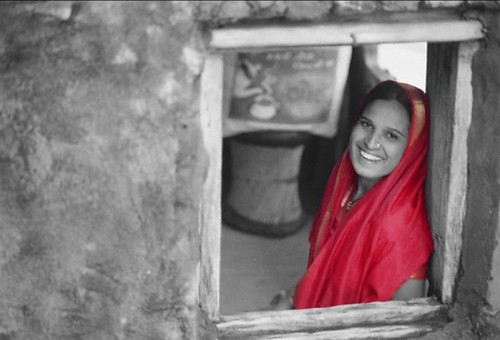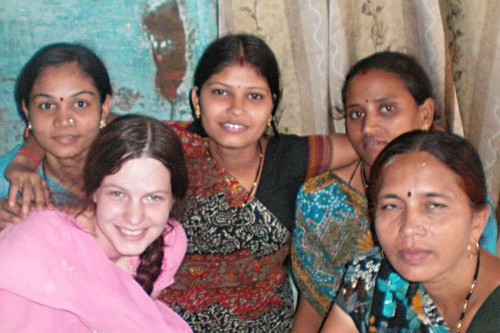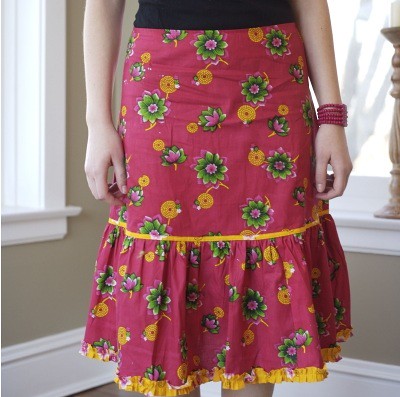Jhoole's ("Ju-Lay")founder Hannah Warren:
"The first time I went to India, it was to live in Varanasi, one of the oldest living cities in the world, situated on the banks of the Ganges River. Seduced by descriptions of the ancient city, I was in love with it before I even arrived. Varanasi is a place where faithful pilgrims go to die because of their belief that the sacred grounds, home to the Hindu god Siva, will relieve them of all their sins and grant them spontaneous enlightenment.

The city I envisioned ended up being drastically different from the reality I encountered upon arrival. I was viscerally overwhelmed by the garbage and cow dung lining the streets, the flies, as numerous as snowflakes, flitting through the air, the dilapidated buildings and blatant poverty. I also got sicker than I have ever been in my life and had this terrible feeling that I was going to die there, and that, ironically, it was not going lead to some romantic enlightenment, but only to a slow and painful death in a foreign country where I was utterly alone.
Varanasi did kill me. But, it also lead to my rebirth. In the end, India exceeded all of my expectations. There is a Hindi saying that lotuses only blossom in the mud. I fell utterly in love with India for what it is: a place of mutually enhancing extremes. I have learned to embrace India for its immense cultural wealth while also refusing to idealize it. With the growing disparity between the rich and the poor, the socio-economic issues perpetuated by caste and gender discrimination need to be faced head on.
Varanasi did kill me. But, it also lead to my rebirth. In the end, India exceeded all of my expectations. There is a Hindi saying that lotuses only blossom in the mud. I fell utterly in love with India for what it is: a place of mutually enhancing extremes. I have learned to embrace India for its immense cultural wealth while also refusing to idealize it. With the growing disparity between the rich and the poor, the socio-economic issues perpetuated by caste and gender discrimination need to be faced head on.

While pursuing a photography project I accidentally stumbled upon a practical way that I could contribute to poverty alleviation. I was creating portraits of female weaver's lives and livelihoods by photographing them wearing saris that they had woven themselves. However,when I actually began to implement the project that I had thought out, I realized that it was virtually impossible, because none of the weavers could even afford to own the exquisite saris that they weave; instead,middlemen provide them with expensive raw materials that they transform into breathtaking saris in return for minimal wages. Instead of abandoning the project I gave the weavers funds to purchase their own materials in order to weave saris for themselves. This was the first time they were given the opportunity to take creative control of their products by personally choosing colors and designs. When they put on the very first saris they had ever designed for themselves, I was blown away: they looked so beautiful and proud.

After I was finished with the photography project I was haunted by my own images... they would not allow me to forget the talented women that I had met. I decided to try and help them further by creating Jhoole, a nonprofit that would facilitate them in gaining direct market access.Through Jhoole, these artisans have been empowered economically as well creatively. Traditionally, women in the Khargone region have very little access to technical knowledge about hand loom weaving. The technique for setting designs on looms is coveted by a male lineage of "master weavers"who charge large fees for their services. We have organized trainings with textile designers who teach the women all the technical aspects of their looms offering them creative as well as economic liberation from "master weavers". Through the social and economic opportunities generated by Jhoole, these women have been able to improve their lives, ultimately changing the future of their children and communities. Read more about our cooperative and how we are also helping individuals stuck at the bottom of the supply chain and living in conditions akin to modern to day slavery atwww.jhoole.org. "

(Above) Jhoole founder, Hannah Warren, with weavers:
Maya Verma, Deepa Kewat, Resham Kewat and Asha Kewat.
See products made by women at Jhoole offered by Dignity Regained.




